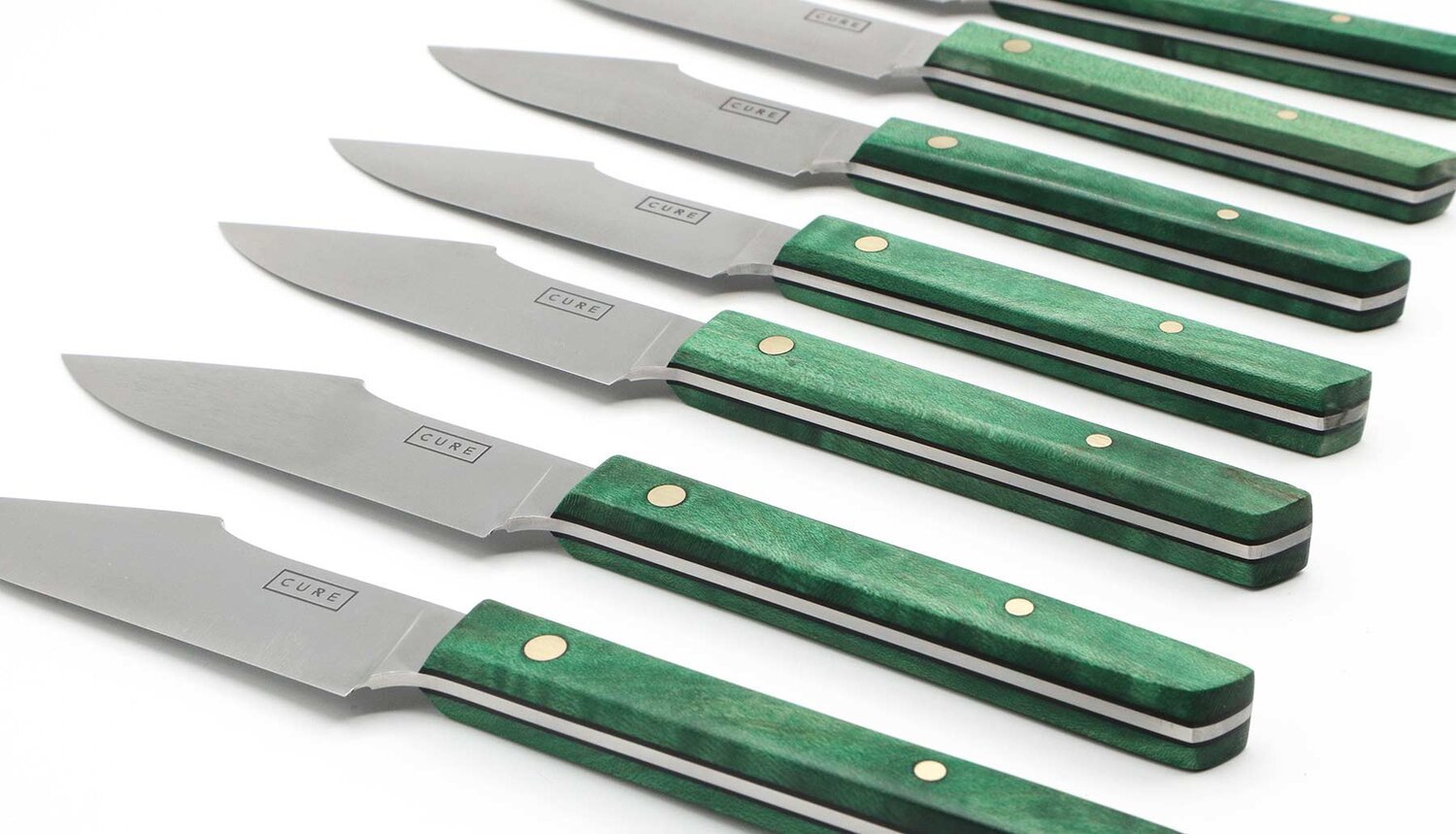Welsh Craig Lockwood was working as a software developer when he by chance came in contact with knife making. Lockwood decided he wanted to get into knife making and today that is his full-time job as the owner of Chop Knives.
Environmentally Sharp knifes
Welsh Craig Lockwood was working as a software developer when he by chance came in contact with knife making.
“My wife and I used to arrange software conferences but after a while, they started to become very much the same. To do something different, we brought the participants out to the woods and gave them the chance to learn how to make a wooden spoon, axe-making, etc. I have always been a “maker” and this activity made me lose all interest in computer stuff.”
After doing some research, Lockwood decided he wanted to get into knife making, and today that is his full-time job as the owner of Chop Knives. He mixes traditional processes with cutting-edge technologies to create knives that can stand up to the demands of a busy kitchen or restaurant.
His handmade knives have been delivered to restaurants such as Michelin-starred Black Swan and L´Enclume in the UK. He also runs the Knife Talk podcast with 50,000 listeners per week.

A responsible maker
Craig Lockwood does not only want to make the best knives on the market, but he also wants to make the world’s most sustainable knives. “As a responsible maker, I have been thinking a lot about how I can make a kitchen knife that has a positive effect on the planet. I follow the supply chain of all materials used and work hard to find suppliers who are leaving as little of an impact as possible.”
Research made him choose Alleima
“Made from 78 percent recycled steel in one of the world’s most ecologically sound steel mills, the steel is then cut, shaped, and ground by hand in my workshop which is powered by green energy,” he says. The specific steel grades used in Chop Knives are Alleima 14C28N™ and Alleima 12C27M.
"I follow the supply chain of all materials used and work hard to find suppliers who are leaving as little of an impact as possible."
Made out of yogurt
The sustainability ambitions do not stop with the steel blade. Lockwood also reuses kitchen waste, such as yogurt pots, meat packing trays, or water bottles, to create knife handles. The process is simple, get a load of plastic that is destined for landfill, shred it, heat it and then squish it back together.”
“I am aware that as a maker I am part of the problem but I do all I can to make it in a responsible way. I am always looking for ways to work in a more sustainable way. The hope is that if we all make these small changes, it will make a big impact”, says Lockwood.

